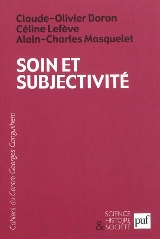Journée d’étude – Jeunes, santé et insertion
Vendredi 11 février 2011 | Villeneuve d’Ascq (59655)
Les étudiants du Master 2 Pratiques et Politiques Locales de Santé (PPLS) vous invitent à une journée d’étude pour échanger, mettre en débat et mutualiser les connaissances sur la question de la santé des jeunes et leur insertion en région Nord – Pas de Calais. En partenariat avec l’USTL de Lille, l’Anpaa 59 et le Clersé-CNRS Lille 1, les débats s’organiseront à partir de pratiques, d’expériences et de travaux de recherches en sciences humaines et sociales autour de quatre thèmes principaux :
« Contexte et enjeux des politiques publique de santé en direction des jeunes »
« Insertion des jeunes, discrimination et santé »
« Santé des jeunes, classes populaires et publics précarisés »
« Jeunes, insertion et rapports sociaux de sexe ».
Université Lille 1, Villeneuve d’Ascq, Métro Cité Scientifique
Programme de la journée
Matinée
Introduction de la matinée : Geneviève Cresson (Université Lille 1, Clersé-CNRS), Abdelhafid Hammouche (Clersé-CNRS), Anne Dassonville (Anpaa 59)
Jacques Rodriguez (Université Lille 1, Clersé-CNRS), Les politiques en santé en faveur des jeunes : histoire et enjeux.
Bruno Delaval (Directeur de l’Uriopss), Politique de santé des jeunes en région Nord-Pas de Calais : enjeux et réalités du point de vue des acteurs.
Marie-Héléne Toutin, Benoît Cart (Cereq), Présentation de l’enquête génération : insertion professionnelle des jeunes.
Blandine Mortain, Cécile Vignal (Université Lille 1, Clersé- CNRS) Présentation de l’étude sur la décohabitation des jeunes.
Jacqueline Rommens (Coordinatrice régionale des actions de santé en Mission locale) La santé dans les parcours d’insertion de jeunes en Mission locale.
Abdelhafid Hammouche (Université Lille 1, Directeur du Clersé-CNRS) Politique de la ville et rapport de génération.
Aprés-Midi
Introduction de l’après midi : Philippe Rollet (Président de (Université Lille 1)
Henri Peltier, (Ceser Nord – Pas de Calais) Santé des jeunes en errance en Nord – Pas de Calais.
Jésus Bugallo-Vales (Travailleur social en quartier populaire), Le poids du monde, la toxicomanie, et les pratiques de travail social.
Anne Dassonville (Sociologue, chargée de projet à l’ANPAA59), Zorah Haddou (Foyer de jeunes travailleurs Paul Constant de Roubaix) La santé des jeunes en Foyer de jeunes travailleurs.
Jessy Cormont (Professionnel en formation Master 2 PPLS) Les inégalités racistes de santé : une réalité invisible.
Pierre Brasseur (Étudiant Master PPLS parcours recherche) Interroger la sexualité des jeunes ? Méthodes et résultats.
Véronique Séhier (directrice du Nouveau Planning Familial de Lille) La sexualité et l’insertion des jeunes au regard de leur autonomie.
Aline Idée (Étudiante Master PPLS parcours professionnel), Santé et insertion des jeunes au regard de la question de genre.
Les tables rondes seront introduites et animées par les étudiants et les étudiantes du master 2 PPLS

